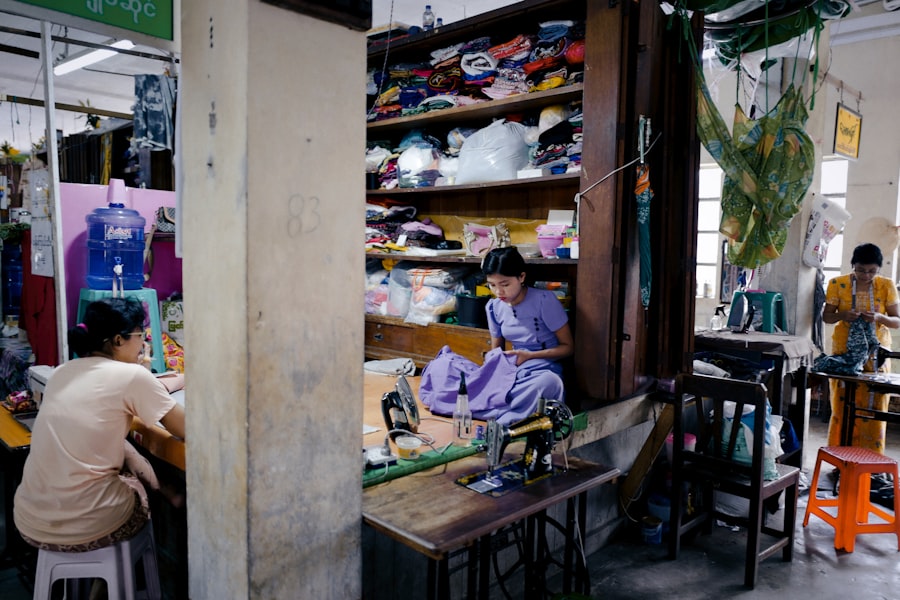Understanding the impact of heat on animals is crucial for their well-being. Like humans, animals can experience heat exhaustion and heat stroke when exposed to high temperatures for extended periods. It is essential to recognize signs of heat stress in animals, including excessive panting, drooling, weakness, and lethargy.
Some animals are more vulnerable to heat stress, particularly those with thick fur coats or short snouts. Different species have varying temperature requirements. Reptiles, for instance, need a specific temperature gradient in their enclosures to regulate their body temperature effectively.
Birds may require cooler environments to prevent overheating. Understanding the unique needs of each animal species is vital for providing appropriate care during hot weather. By comprehending how heat affects different animals, caretakers can implement proactive measures to ensure their comfort and safety during periods of high temperatures.
This knowledge allows for the development of species-specific strategies to mitigate the risks associated with heat stress and maintain optimal animal health.
Table of Contents
- 1 Providing Shade
- 2 Proper Ventilation
- 3 Access to Fresh Water
- 4 Cooling Treats
- 5 Misting Systems
- 6 Monitoring Health
- 7 FAQs
- 7.1 What are the best ways to keep chickens cool in Florida?
- 7.2 How can I provide shade for my chickens in Florida?
- 7.3 What type of ventilation is best for keeping chickens cool in Florida?
- 7.4 How can I ensure my chickens have access to cool water in Florida?
- 7.5 Are there any specific breeds of chickens that are better suited for the Florida climate?
Key Takeaways
- Understanding the heat is crucial for keeping pets safe in hot weather
- Providing shade is essential for pets to escape the direct sun and cool down
- Proper ventilation helps to circulate air and prevent overheating
- Access to fresh water is vital to keep pets hydrated and regulate their body temperature
- Cooling treats can help pets cool down and provide a refreshing snack
- Misting systems can help lower the temperature in outdoor areas for pets
- Monitoring pets’ health is important during hot weather to prevent heat-related illnesses
Providing Shade
The Importance of Shade
Shade not only helps to lower the ambient temperature but also provides a refuge from the sun’s harmful UV rays. In addition to providing shade, it’s important to consider the placement of enclosures and habitats. Placing enclosures in shaded areas or positioning them in a way that minimizes direct sunlight can help keep animals cool and comfortable.
Enclosure Placement and Design
Furthermore, providing options for animals to move between shaded and sunny areas allows them to regulate their body temperature naturally. By providing ample shade and considering the placement of enclosures, we can help animals stay cool and safe during hot weather.
Creating a Comfortable Environment
By taking these steps, we can create a comfortable environment for animals to thrive in, even during the hottest months of the year. By prioritizing shade and enclosure placement, we can help ensure the health and well-being of animals in our care.
Proper Ventilation

Proper ventilation is crucial for maintaining a comfortable environment for animals during hot weather. Good airflow helps to dissipate heat and prevent the buildup of stagnant, hot air. This is especially important for animals housed indoors or in enclosed spaces where air circulation may be limited.
Adequate ventilation can be achieved through the use of fans, air vents, and open windows to promote air movement and cooling. In addition to mechanical ventilation, natural ventilation methods such as cross-ventilation and chimney effect can also be utilized to improve airflow and reduce indoor temperatures. These methods rely on the principles of air pressure differentials and thermal buoyancy to facilitate the exchange of hot indoor air with cooler outdoor air.
By ensuring proper ventilation in animal enclosures, we can help mitigate the effects of hot weather and create a more comfortable living environment for animals.
Access to Fresh Water
Access to fresh water is essential for animals to stay hydrated and regulate their body temperature during hot weather. Dehydration can occur quickly in high temperatures, leading to serious health issues for animals. It’s important to provide a constant supply of clean, fresh water for animals to drink and cool off in.
This is especially important for animals that are kept outdoors or in environments with limited access to water sources. In addition to providing water for drinking, it’s beneficial to offer shallow water dishes or misting systems for animals to soak in or bathe. This not only helps them stay hydrated but also provides a means of cooling off when temperatures rise.
By ensuring access to fresh water, we can help animals stay hydrated and comfortable during hot weather.
Cooling Treats
Providing cooling treats is a fun and effective way to help animals beat the heat during hot weather. Frozen fruits and vegetables, ice blocks with treats frozen inside, and chilled watermelon are just a few examples of cooling treats that can help animals cool down and stay entertained. These treats not only provide hydration but also offer mental stimulation and enrichment for animals.
In addition to frozen treats, offering cold, wet towels or ice packs for animals to lay on can help lower their body temperature and provide relief from the heat. These simple yet effective cooling treats can make a big difference in helping animals stay cool and comfortable during hot weather.
Misting Systems

Effective Cooling Solution
Misting systems can be installed in outdoor enclosures, aviaries, and even indoor habitats to provide a cooling effect for animals.
Dual Functionality
In addition to cooling the air, misting systems can also provide a source of moisture for animals to drink from or bathe in. This dual function helps to keep animals hydrated and cool during hot weather.
Enhancing Animal Care
By incorporating misting systems into animal care routines, we can create a more comfortable environment for animals during hot weather.
Monitoring Health
Monitoring the health of animals is crucial during hot weather to ensure they are coping well with the heat. This includes regularly checking for signs of heat stress or dehydration, such as excessive panting, lethargy, or loss of appetite. It’s important to be proactive in addressing any signs of distress and taking measures to cool down animals if necessary.
Furthermore, it’s important to be aware of the specific needs of different species and breeds when it comes to coping with hot weather. Some animals may be more susceptible to heat stress than others, and may require additional measures such as increased shade or access to cooling methods. By monitoring the health of animals closely and being attentive to their individual needs, we can ensure their well-being during hot weather.
In conclusion, understanding the heat and its effects on animals is essential in providing the best care during hot weather. By providing shade, proper ventilation, access to fresh water, cooling treats, misting systems, and monitoring health, we can help animals stay cool and comfortable during hot weather. It’s important to be proactive in implementing these measures to ensure the well-being of animals in our care.
If you’re looking for more tips on keeping your chickens comfortable in hot climates like Florida, check out this article on chicken coop door size. It offers valuable information on how to properly ventilate your coop to keep your chickens cool during the sweltering summer months.
FAQs
What are the best ways to keep chickens cool in Florida?
In Florida, it’s important to provide shade, proper ventilation, and access to cool water to keep chickens cool. This can be achieved through the use of shade cloth, fans, misters, and shallow pools of water.
How can I provide shade for my chickens in Florida?
Shade can be provided by using shade cloth, trees, or building a covered area in the chicken coop or run. It’s important to ensure that the shade is available throughout the day as the sun moves.
What type of ventilation is best for keeping chickens cool in Florida?
Proper ventilation can be achieved by using fans, windows, and vents in the chicken coop. This helps to circulate air and prevent the buildup of heat and humidity.
How can I ensure my chickens have access to cool water in Florida?
It’s important to provide chickens with access to cool, clean water at all times. This can be achieved by using waterers that are kept in shaded areas and refilled regularly to ensure the water stays cool.
Are there any specific breeds of chickens that are better suited for the Florida climate?
Some chicken breeds, such as the Leghorn and the Sussex, are known for their heat tolerance and may be better suited for the Florida climate. It’s important to research and select breeds that are well adapted to hot and humid conditions.
Meet Walter, the feathered-friend fanatic of Florida! Nestled in the sunshine state, Walter struts through life with his feathered companions, clucking his way to happiness. With a coop that’s fancier than a five-star hotel, he’s the Don Juan of the chicken world. When he’s not teaching his hens to do the cha-cha, you’ll find him in a heated debate with his prized rooster, Sir Clucks-a-Lot. Walter’s poultry passion is no yolk; he’s the sunny-side-up guy you never knew you needed in your flock of friends!







